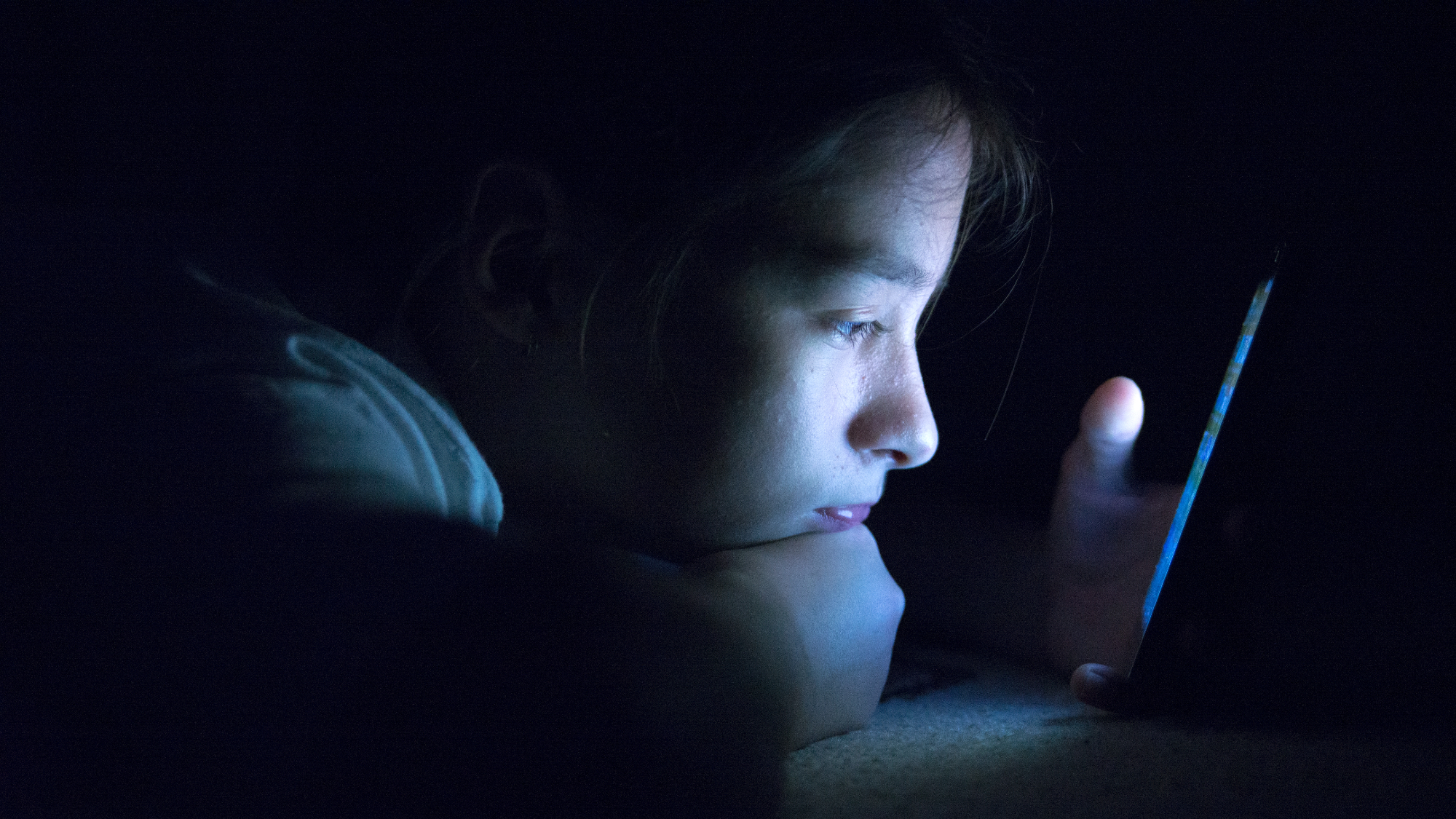The Anxious Generation: US psychologist Jonathan Haidt's 'urgent and essential' new book
Haidt calls out 'the Great Rewiring of Childhood' phenomenon

A free daily email with the biggest news stories of the day – and the best features from TheWeek.com
You are now subscribed
Your newsletter sign-up was successful
At the start of the 2010s, rates of teenage mental illness in the US, the UK and many other Western countries took a sharp upward turn, said Sophie McBain in The Guardian. "And they have been rising ever since."
In all these places, diagnoses of depression and anxiety have sky-rocketed, as have rates of self-harm and suicide. The US psychologist Jonathan Haidt reckons he knows what lies behind this trend. Apple released the world's first smartphone in 2007 – and Haidt thinks the mass adoption of these devices, together with the advent of social media, is driving an unprecedented teenage mental-health crisis.
In his "urgent and essential" new book, Haidt argues that in the past decade or so, childhood has gone from being "play-based" to being "phone-based". While children and teenagers are ever more monitored and protected in their offline lives, on the internet they are given extensive "freedom to roam", which places them in the way of myriad harms, from "being bullied and harassed" to encountering violent pornography, or sites that glorify suicide. Haidt calls this phenomenon "the Great Rewiring of Childhood".
The Week
Escape your echo chamber. Get the facts behind the news, plus analysis from multiple perspectives.

Sign up for The Week's Free Newsletters
From our morning news briefing to a weekly Good News Newsletter, get the best of The Week delivered directly to your inbox.
From our morning news briefing to a weekly Good News Newsletter, get the best of The Week delivered directly to your inbox.
It's clear, both statistically and anecdotally, that the "generational anxiety" identified by Haidt is real, said Tiffany Jenkins in Literary Review. Yet it's surely premature to put all the blame for this on smartphones. "Correlation is not causation", and there are plenty of other factors that could explain the rising anxiety of today's teens, from the economic turmoil of the past 15 years to the threat of environmental catastrophe.
But do we really need definitive proof that smartphones harm young people before taking actions to restrict them, asked Helen Rumbelow in The Times. Surely it's best to work on the "precautionary principle"; and anyway, common sense tells us that spending hours each day glued to a smartphone, scrolling through mindless content, is "not how human adolescents best live".
Indeed, said Ed Smith in The New Statesman. The "compelling thesis" at the heart of Haidt's book is that smartphones, by encouraging addiction to "surface trivia", prevent young people developing the "essential mix of resilience and attention that forges character and achievement". It interferes with social relationships, rendering them "forever elsewhere". Of course, Silicon Valley execs know this – which is why they "don't let their own kids near the digital dope they push at ours". How depressing that so many of the world's best and brightest have dedicated their lives to inducing others to waste theirs "hunched over a glass rectangle".
Jonathan Haidt, £25
A free daily email with the biggest news stories of the day – and the best features from TheWeek.com
-
 Kia EV4: a ‘terrifically comfy’ electric car
Kia EV4: a ‘terrifically comfy’ electric carThe Week Recommends The family-friendly vehicle has ‘plush seats’ and generous space
-
 Bonfire of the Murdochs: an ‘utterly gripping’ book
Bonfire of the Murdochs: an ‘utterly gripping’ bookThe Week Recommends Gabriel Sherman examines Rupert Murdoch’s ‘war of succession’ over his media empire
-
 Gwen John: Strange Beauties – a ‘superb’ retrospective
Gwen John: Strange Beauties – a ‘superb’ retrospectiveThe Week Recommends ‘Daunting’ show at the National Museum Cardiff plunges viewers into the Welsh artist’s ‘spiritual, austere existence’
-
 Travel for all: 6 of the world’s most accessible destinations
Travel for all: 6 of the world’s most accessible destinationsThe Week Recommends Experience all of Berlin, Singapore and Sydney
-
 Bad Bunny’s Super Bowl: A win for unity
Bad Bunny’s Super Bowl: A win for unityFeature The global superstar's halftime show was a celebration for everyone to enjoy
-
 Book reviews: ‘Bonfire of the Murdochs’ and ‘The Typewriter and the Guillotine’
Book reviews: ‘Bonfire of the Murdochs’ and ‘The Typewriter and the Guillotine’Feature New insights into the Murdoch family’s turmoil and a renowned journalist’s time in pre-World War II Paris
-
 The 8 best TV shows of the 1960s
The 8 best TV shows of the 1960sThe Week Recommends The standout shows of this decade take viewers from outer space to the Wild West
-
 The year’s ‘it’ vegetable is a versatile, economical wonder
The year’s ‘it’ vegetable is a versatile, economical wonderthe week recommends How to think about thinking about cabbage


